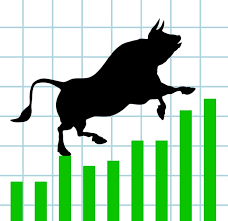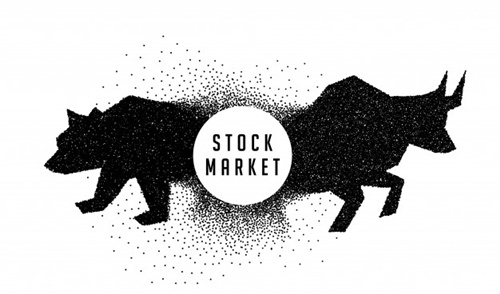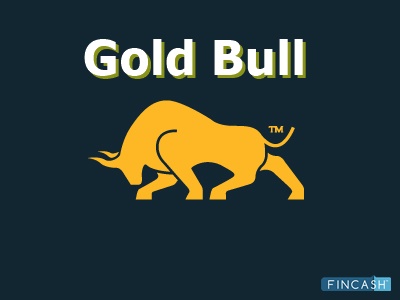
Table of Contents
Bull Market
What is a Bull Market?
A bull Market is a period where stocks are going up in value. It is when a investment's price rises over an extended period. Bull market term is commonly used when describing securities, such as stocks, commodities and Bonds. Sometimes it can also used for investments like housing. In a bull market phase investors buy a lot of shares because they expect that the shares will increase in value and that they will be able to make a profit by selling them again.

3 Drivers of a Stock Bull Market
1. Top-line revenue
Top-line revenue should increase as fast as the Economy as measured by nominal GDP. This reflects demand for goods and services from consumers.
2. Profit
Profit is how much top revenue has generated in profit for the company.
3. P/E Ratio
P/E ratio is how much in additional stock price that investors are willing to pay for each dollar of Earnings.
Talk to our investment specialist
Different Kinds of Bull Markets
There are a couple other terms used to delineate specific kinds of bull markets.
1. Secular Bull Market
A secular bull market is a bull market lasting a long time -- typically between five and 25 years. In a secular bull market, market corrections (where prices decline 10 percent, but increase again) are called primary market trends.
2. Bond Bull Market
A bond bull market is when the rates of return for bonds are positive for a long period of time.
3. Gold Bull Market
A Gold Bull market is when the price of gold continues increasing. Historically, 2011 saw a high of gold prices at $1,895 compared to the mid $300-$400 Range it rested at in previous years.
4. Market Bull
A market bull is a someone who thinks that prices are going up. That person is said to be bullish. A market bear is the opposite. The one who thinks prices are going down and is said to be bearish.
All efforts have been made to ensure the information provided here is accurate. However, no guarantees are made regarding correctness of data. Please verify with scheme information document before making any investment.












